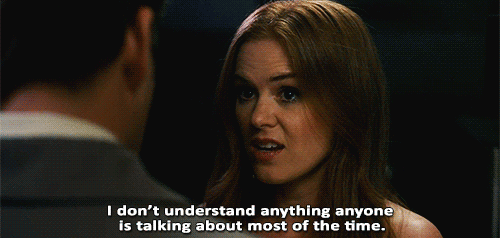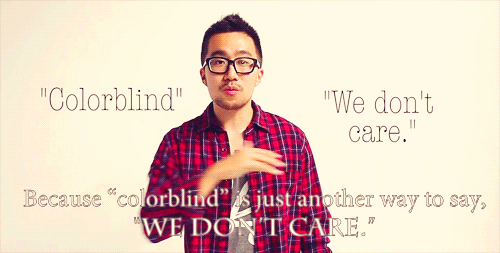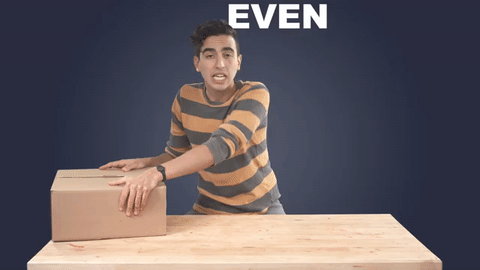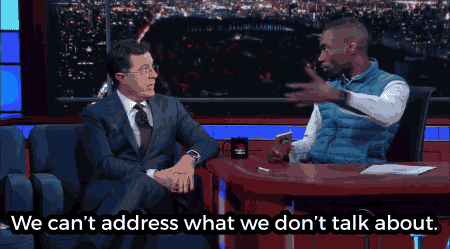The Diversity Conversation (pt 1)
- katchowrites
- Jan 5, 2017
- 5 min read
I’ve watched the conversation around diversity change over the past few years when it comes to literature and YA/kidlit in particular. I took interest for obvious reasons, I am a writer of color who wants to write about my own experiences and heritage. However, even as a POC I was not prepared for some of the hard lessons I’ve learned over the past few years. And I came to realize that it’s because I didn’t have the foundation for it yet. I had to build that first before I could enter the harder conversations and really understand what they were about (let alone partake in them! Which, I still don’t do that often because I am still learning).

I’m going to make an analogy for this post with the hopes that I can shed light on my own journey and perhaps help at least one person understand how much time it takes to even begin to understand this ongoing conversation we call “diversity.” So, I’m going to compare the conversation about diversity to school courses.
When I was a senior I took a class that beat the snot out of my brain, Biochemistry. I was so wrung dry after a semester of it that I dreamed about it (or, more accurately, I had nightmares about it). However, I still got a very respectable B+ in that course. I know that the only reason I got that grade was because I’d prepared myself for it. I took a year of intro biology, a year of intro chemistry, a year of organic chemistry, plus labs for all of these classes.
My coworker was talking about her classes the other day and said that she was required to take biochemistry but half of the class hadn’t taken intro biology yet. I was floored at how that’s even possible. How could you understand the very complex subjects of biochemistry without taking the intro class first? It just didn’t seem logical! (unsurprisingly most of those students dropped the class)

The reason I’m telling these strange school anecdotes is to say that I think people should learn the basics before they can join the more advanced classes.
If you look at conversations about diversity in the same way, you should learn the basics in the 101 courses about inequality, systemic/institutional racism, systemic misogyny, internalized sexism, systemic ableism, and how cis/het/straight is presented as the “norm” in our society.
Then you need to take the 201 courses to understand how those concepts affect big picture defacto treatment of marginalized AND microaggressions that happen daily.
After all of those foundational courses, it’s possible to join the advanced courses which are the ongoing conversations about why X book is problematic or Y movie is appropriative or Z author’s Twitter feed is insensitive to the very audience they write for.
I see people jumping into conversations on social media or at a house party to explain why they don’t understand why such-and-such is a big deal. And I can completely understand why they don’t get it. It’s because they don’t have a foundation built up yet. They don’t know the long and hard history of how we got here as a diverse country/society. It’s because they haven’t learned the basics of why this all matters. The issue is that when you take biochemistry without taking biology 101, the only one that suffers is you. When you try to push your way into conversations about diversity without understanding, you’re hurting other people. This is where my analogy ends and the real talk begins.

We need to stop being so naive to think we already have all the tools to talk about the problems with society just because we live in it. The world is not perfect, we know that much. However, why the world isn’t perfect is up for debate. The thing that isn’t up for debate: other people’s pain. If someone says they’re hurt, that’s it. You believe them.
For me personally, I joined the YA community when I was still learning about my own identity and coming to terms with the idea of writing myself onto the page. I still defaulted to what society told me was the “norm.” I made my MC’s white because I didn’t know if YA audiences would relate to POC MC’s. I also did not know enough about other marginalized communities to speak about their issues. I still have a lot to learn when it comes to communities I’m not a member of, so I still sit back and listen to those kind enough to speak out about it (for free! Seriously, emotional labor is labor and many people do it for free).
On top of that, POC/marginalized can be biased too. Being a racial minority does not stop a person from being ableist or heteronormative, etc. I had to unlearn many off-hand statements I used in every day conversation because I didn’t realize that it was perpetuating an ableist norm. I also had to unlearn some phrases that were cruel to other POC and Native groups. I grew up in the United States, which means I was raised watching TV shows that told me white was normal; and men married women; and boys played with cars and girls played with dolls. My parents NEVER told me that was normal, but society did. And I had to decide for myself if that’s what I would believe or not.

video source: Unboxing Ableism
We all have to unpack our biases. And we all need to understand the basic foundation of why these conversations are important. Until then, it’s fine to be quiet and listen. There is no need to be active in the conversation all the time. Sometimes it’s enough to just learn. That’s actually why so many marginalized voices speak out, to help people understand.
I don’t mean to scare anyone away from joining an earnest conversation. But it is on you as the “learner” to understand that your need to learn does not supersede another person’s pain. So asking a marginalized person on Twitter to teach you about their life’s history of marginalization in a 15 minute conversation over 140 characters is probably not the place to start your learning. We are in the age of the amazing internet and google is an awesome thing. And once you’ve created your foundation then you can dip your toe into smaller conversations (perhaps start off in a closed community among friends who are willing to explain the harder things. That’s what I did)

I’d be happy to answer questions if anyone has them and if I don’t have the answers I’ll say that too. After all, I’m still learning as well.
Here are resources to learn from before entering the diversity conversation:
I also have a Twitter list of Diverse writers (it is in NO way comprehensive, but feel free to follow any and all of them!)
For even more links and resources go here: The Diversity Conversation pt2: Resources and Links




Comments